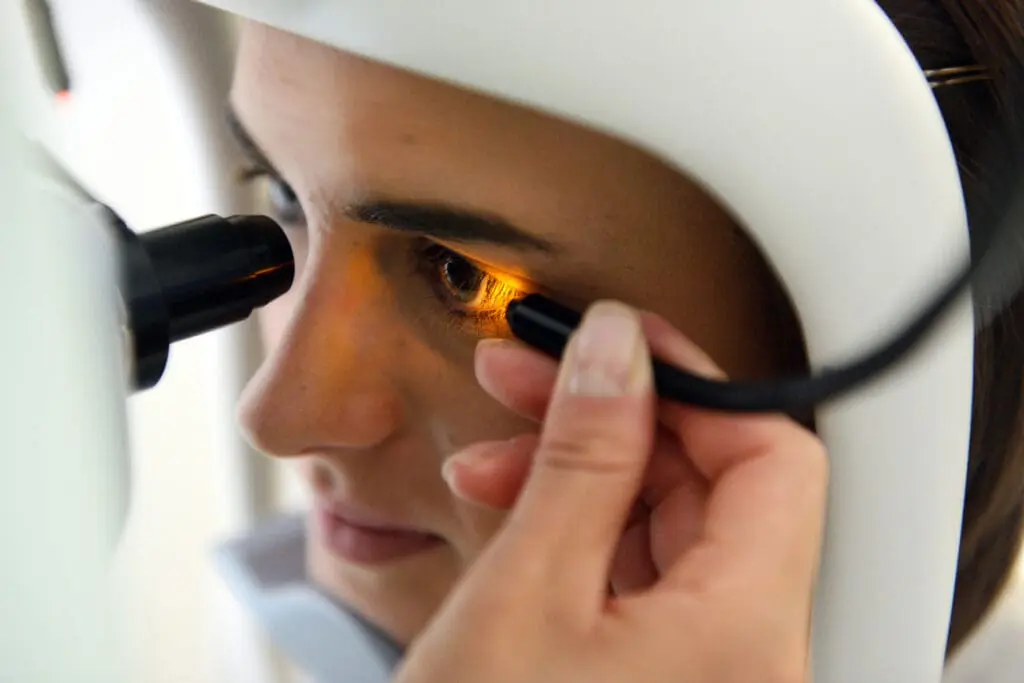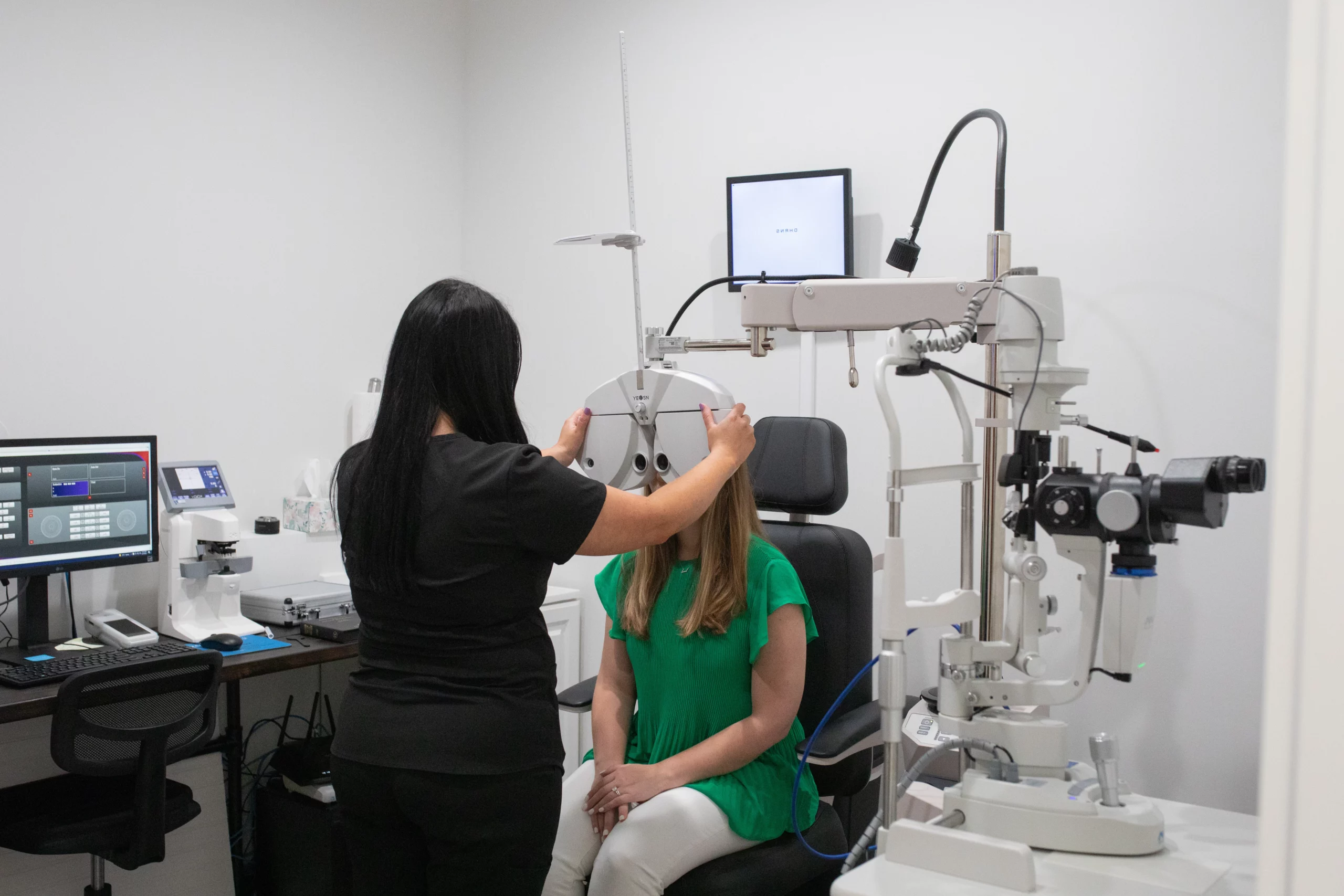Your eyes are one of your most precious senses, yet we often take them for granted. In today’s digital world, where we’re constantly exposed to screens and artificial light, it’s more important than ever to take proactive steps to protect and nourish our vision. One simple but powerful way to support your eye health is by ensuring you’re getting the right vitamins.
In this article, we’ll explore the best vitamins for maintaining eye health, explain how they work, and share food sources and tips for adding them to your daily routine. Whether you’re worried about eye strain, night vision, age-related problems, or just want to keep your eyes healthy long-term, this guide will help you.
Why Eye Health Matters
Our eyes help us see the world—but over time, exposure to sunlight, screens, pollution, and aging can take a toll. Common eye problems like dry eyes, blurry vision, cataracts, and age-related macular degeneration (AMD) can sneak up on us if we don’t take preventive measures.
While lifestyle habits like reducing screen time and wearing sunglasses matter, your diet plays a key role in protecting your vision. Specific vitamins and antioxidants are proven to nourish the eyes and prevent damage.
Top Vitamins for Eye Health
Let’s break down the most effective vitamins for keeping your eyes healthy and how they help.
1. Vitamin A – The Vision Protector
Why it matters:
Vitamin A is essential for maintaining a clear cornea, the outer layer of your eye. It also helps your eyes produce moisture and supports good night vision. A deficiency in vitamin A can lead to dry eyes, night blindness, and even vision loss in severe cases.
Food sources:
- Carrots
- Sweet potatoes
- Spinach
- Kale
- Eggs
- Liver
Pro tip: The plant-based form of vitamin A is called beta-carotene, which your body converts into vitamin A. That’s why you’ve probably heard that carrots are good for your eyes—they’re full of beta-carotene!
2. Vitamin C – The Antioxidant Shield
Why it matters:
Vitamin C is a powerful antioxidant that helps protect the eyes from oxidative damage caused by free radicals. It’s also vital in producing collagen, which maintains the structure of the eye, especially the cornea and sclera (white part of the eye).
Food sources:
- Oranges
- Strawberries
- Bell peppers
- Broccoli
- Kiwi
- Brussels sprouts
Pro tip: Eat raw or lightly cooked veggies to retain the maximum vitamin C content.
3. Vitamin E – The Cell Defender
Why it matters:
Vitamin E protects eye cells from damage by free radicals. Studies show that this vitamin may help reduce the risk of cataracts and AMD.
Food sources:
- Almonds
- Sunflower seeds
- Peanuts
- Avocados
- Spinach
Pro tip: Fat helps your body absorb vitamin E better, so eat it with healthy fats like olive oil or avocado.
4. Vitamin D – The Inflammation Fighter
Why it matters:
Vitamin D isn’t just for bones—it plays a role in reducing eye inflammation and lowering the risk of AMD and dry eyes. Many people don’t get enough, especially those who spend most of their time indoors.
Food sources:
- Fatty fish (salmon, sardines)
- Fortified milk and cereals
- Egg yolks
- Sunshine (your skin makes vitamin D from sunlight!)
Pro tip: Just 15–20 minutes of sun exposure a few times a week can boost your vitamin D levels naturally.
5. B Vitamins – The Nerve Supporters
Why it matters:
B vitamins, especially B6, B9 (folate), and B12, help lower homocysteine levels, which is linked to inflammation that may damage the blood vessels in your eyes. B2 (riboflavin) also plays a role in preventing cataracts.
Food sources:
- Whole grains
- Eggs
- Leafy greens
- Dairy products
- Beans and lentils
Pro tip: Vegans may need B12 supplements since it’s mostly found in animal-based foods.
Bonus Eye Nutrients (Not Vitamins but Very Important!)
In addition to vitamins, some nutrients are just as essential for vision:
Lutein and Zeaxanthin
These are antioxidants found in the retina. They act like natural sunglasses, filtering harmful blue light and preventing damage to your eyes.
Sources: Kale, spinach, corn, eggs, and peas.
Zinc
Zinc helps vitamin A work effectively and supports night vision. It also protects against AMD and poor vision.
Sources: Meat, shellfish, legumes, seeds, and dairy.
Tips for Adding These Vitamins to Your Life
Here’s how you can make these vision-boosting nutrients a regular part of your life:
- Start your day with a smoothie made with spinach, berries, carrots, and yogurt.
- Snack on almonds or sunflower seeds instead of chips.
- Add leafy greens to your lunch or dinner—toss them in pasta or soups.
- Switch to whole grains for added B vitamins.
- Spend time outside to get natural vitamin D from sunlight.
- Use a daily multivitamin or eye health supplement, especially if your diet lacks variety.
What to Watch Out For
While vitamin supplements can help, more isn’t always better. Taking too much vitamin A or E can be harmful. Always follow recommended daily values and consult a doctor if you’re unsure.
Also, remember: vitamins support eye health, but they’re not a cure for eye diseases. If you notice sudden vision changes, discomfort, or persistent dryness, see an eye doctor.
Final Thoughts
Your eyes work hard every day. Giving them the right vitamins and nutrients is one of the best gifts you can give your body. A colorful, balanced diet packed with vegetables, fruits, whole grains, and healthy fats will go a long way in preserving your vision.
Prevention is always better than cure—so start feeding your eyes today.
FAQs About Vitamins and Eye Health
1. Can vitamins really improve my vision?
Vitamins don’t typically improve eyesight in the short term, but they help protect your eyes from future damage and maintain long-term vision health.
2. Are supplements necessary, or can I get enough from food?
You can get most essential eye nutrients from food if you eat a balanced diet. However, supplements may help if your diet is lacking or you have specific deficiencies.
3. Is vitamin A safe to take every day?
Yes, but be cautious with high doses. Too much vitamin A can be toxic, especially in supplement form. Stick to recommended amounts or get it from food sources like carrots and spinach.
4. Are there any side effects of taking eye vitamins?
Most eye vitamins are safe when taken as directed. However, large doses of fat-soluble vitamins (A, D, E) can build up in the body and cause side effects. Always consult a healthcare provider before starting new supplements.
5. Can kids and seniors take the same eye vitamins?
While the same nutrients are important for all ages, kids and seniors often have different nutritional needs. Always choose age-appropriate doses and talk to a pediatrician or doctor for guidance.
Your eyes deserve care. Start today with the right vitamins and a vision-friendly lifestyle—and see the world clearly for years to come. 👁️🥦🌞



